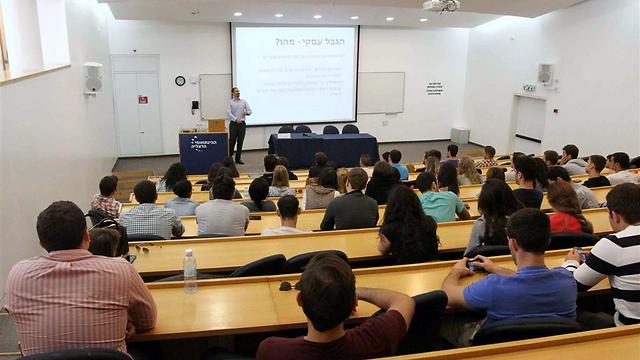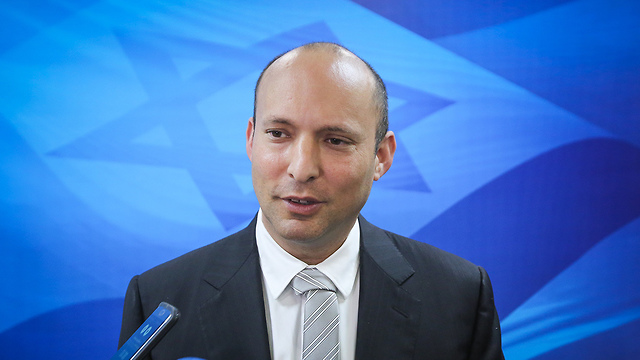
IDC may be allowed to grant doctoral degrees
Council for Higher Education to convene this week to discuss allowing private Herzliya institution to instate doctorate programs; Education Minister Bennett: 'A great step in pushing higher education forward'; MK Yona: 'Path to a doctorate may hinge greatly on applicants' economic means.'
Following the Council for Higher Education affording the Herzliya Interdisciplinary Center (IDC) autonomy in issuing master's degrees last week, Ynet has learned that the council will convene again this week to discuss whether to allow the IDC to also grant doctorates.
If the motion is approved, the private academic institution will be spared receiving approval for master's degrees from the Council for Higher Education. Regarding the issuing of doctorates, it appeared the IDC will only be initially cleared to grant law doctorates.
The IDC was founded in 1994 by Prof. Uriel Reichman and today boasts a student body of some 7,000 students. It receives no public funds and is administered using students' tuition—which at NIS 40,200 annually is four times larger than tuition at public universities—and private donations.
The college hosts law, computer science, business administration, communications, psychology and economics faculties.
Sources with knowledge of the inner workings of the process—spearheaded by Education Minister Naftali Bennett—said the likelihood of its implementation was "very high."
Bennett himself spoke on the matter, saying, "Turning the Interdisciplinary Center into a university is a great step in pushing higher education forward and a better future for Israel's youngsters.
"Opening advanced degree tracks at the Interdisciplinary Center will provide more students with a broader opportunity to realize their abilities, and allow more outstanding, brilliant minds to become more professional in their fields.
"This decision will be brought before the Council for Higher Education next week, and we'll be able to get underway. I wish to congratulate all of my partners in promoting this momentous move. The world of academia is the foundation of a stable economy, and any such step will therefore invariably lead to improving Israel's quality of life."
MK Yona: 'Road to doctorate will hinge on economic means'
Unsurprisingly, the proposed move was met with vociferous opposition. MK Yossi Yona (Zionist Union), for instance, adamantly claimed that, "Unlike many other fields, education still allows to find congruence between high costs and the quality of the 'product.'
"The more a person pays, the better the service they wish to receive, causing the quality of education to potentially drop."
MK Yona added that, "Some study programs in colleges are considered prestigious, but those admitted to them were people with the means to pay exorbitant sums."
The Zionist Union MK also voiced his concerns that Israel's higher education will undergo a process of "Americanization" and that "university lecturers will trickle to private institutions—a process that may be expedited due to the IDC decision."

"We're at the beginning of a process in which more and more private colleges will grant advanced degrees," he said, "with the path to a doctorate possibly hinging greatly on applicants' economic means."
Voices within academia were also perturbed by the decision, cautioning against a degradation in academic standards. A prominent legal professor said, "The question is whether an institution seeking to be recognized as a university meets academic criteria. If it does, there's no reason not to recognize it as a university."
"The IDC's law school is not bad," the professor added, "but it isn't as good as universities' law schools."
The Council for Higher Education provided comment, saying, "According to the council's decision from 2014, institutions for higher learning that have yet to be certified to grant doctoral degrees may petition to become so, as long as they meet the council's prerequisites.
"The IDC has submitted a request to open a law doctoral program and the council will discuss whether it has met its conditions. In any event, it should be noted the council's debate will only deal with meeting conditions to grant doctorates, rather than the institution's definition."
The Herzliya Interdisciplinary Center declined comment.












